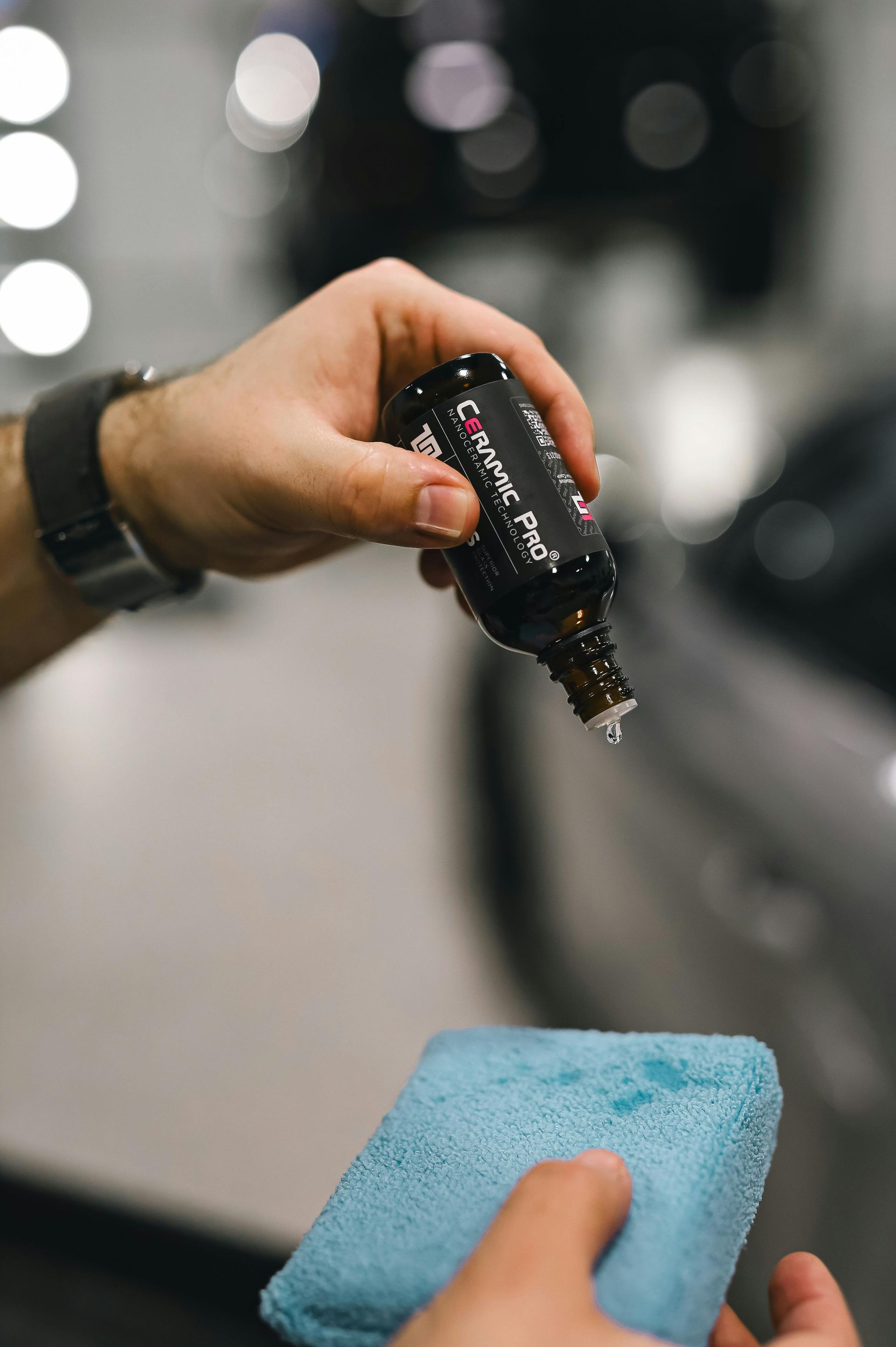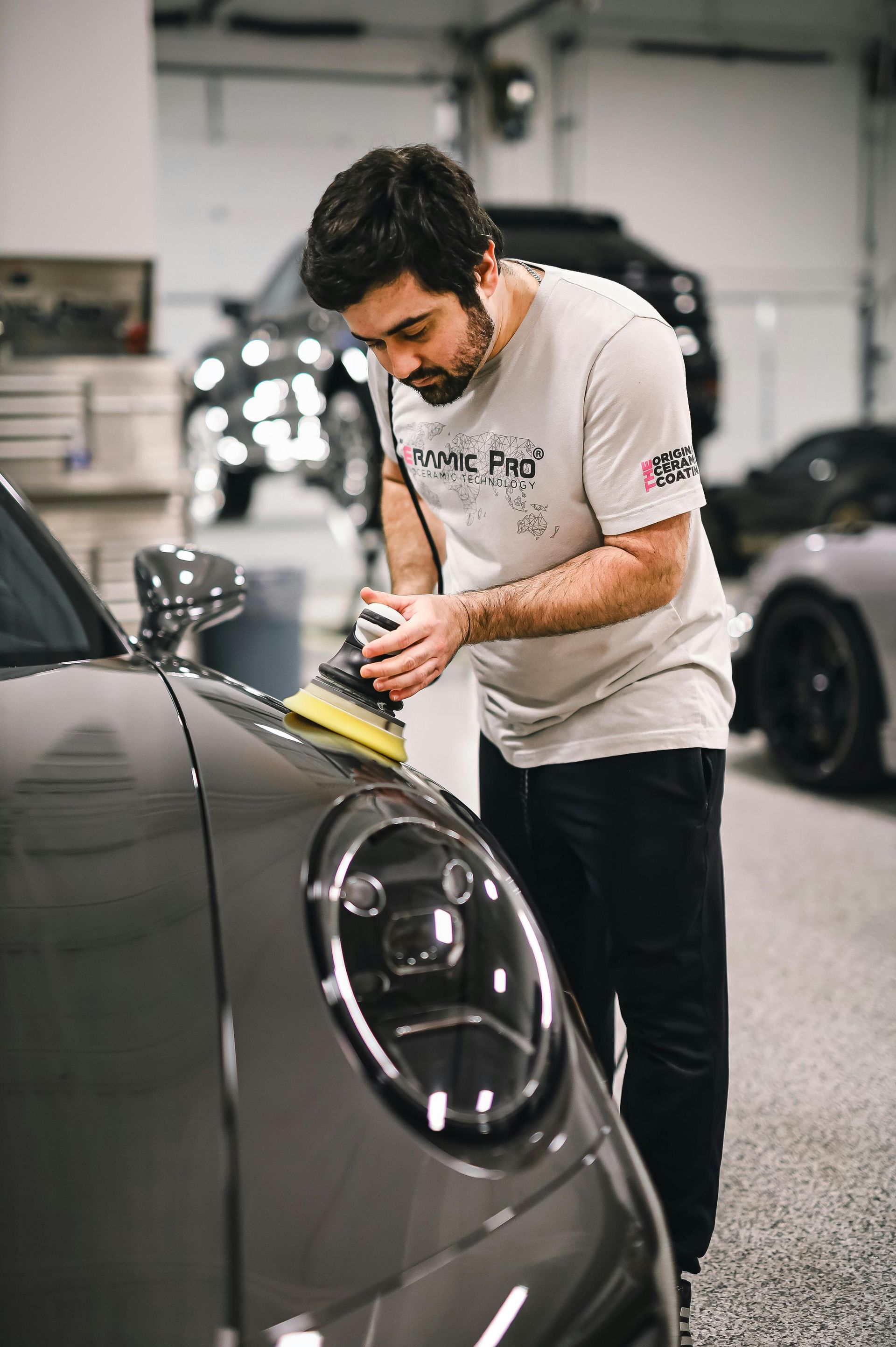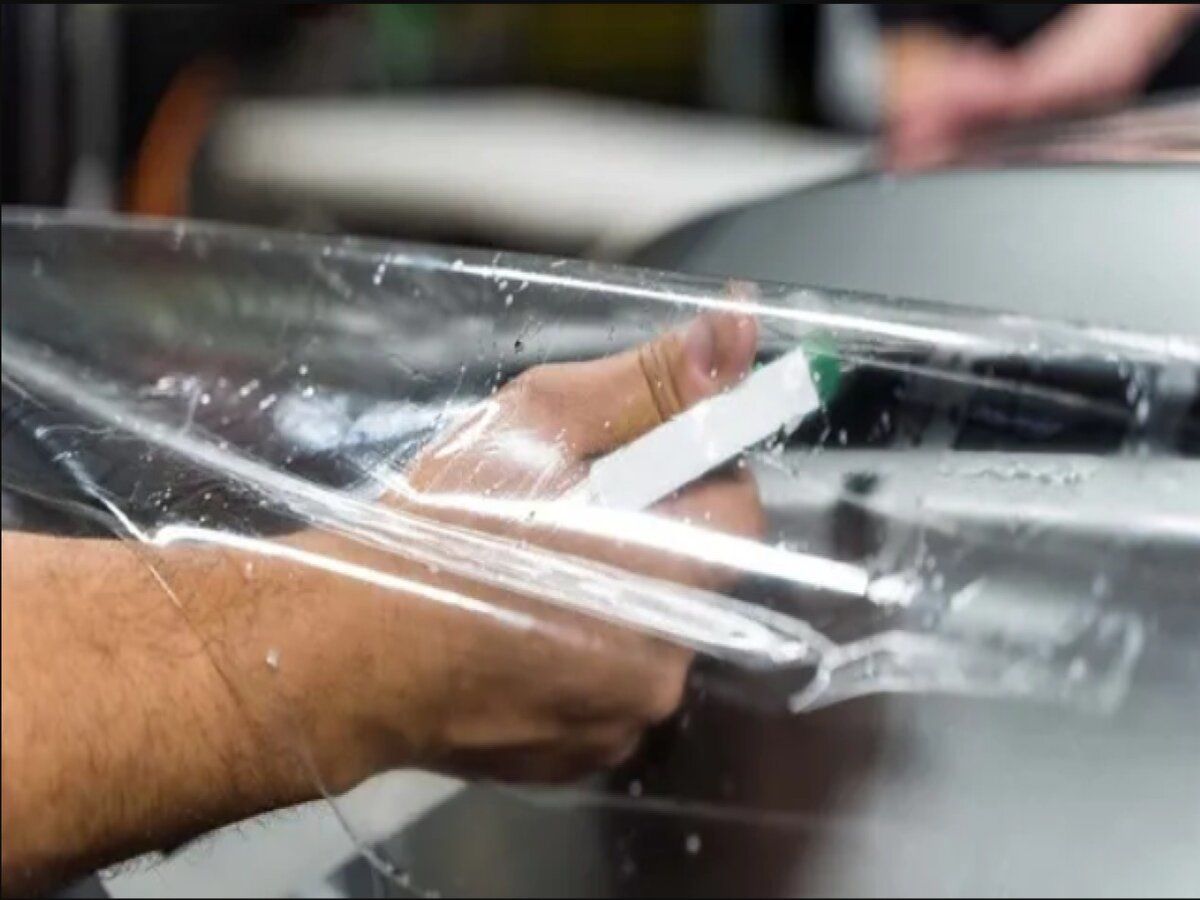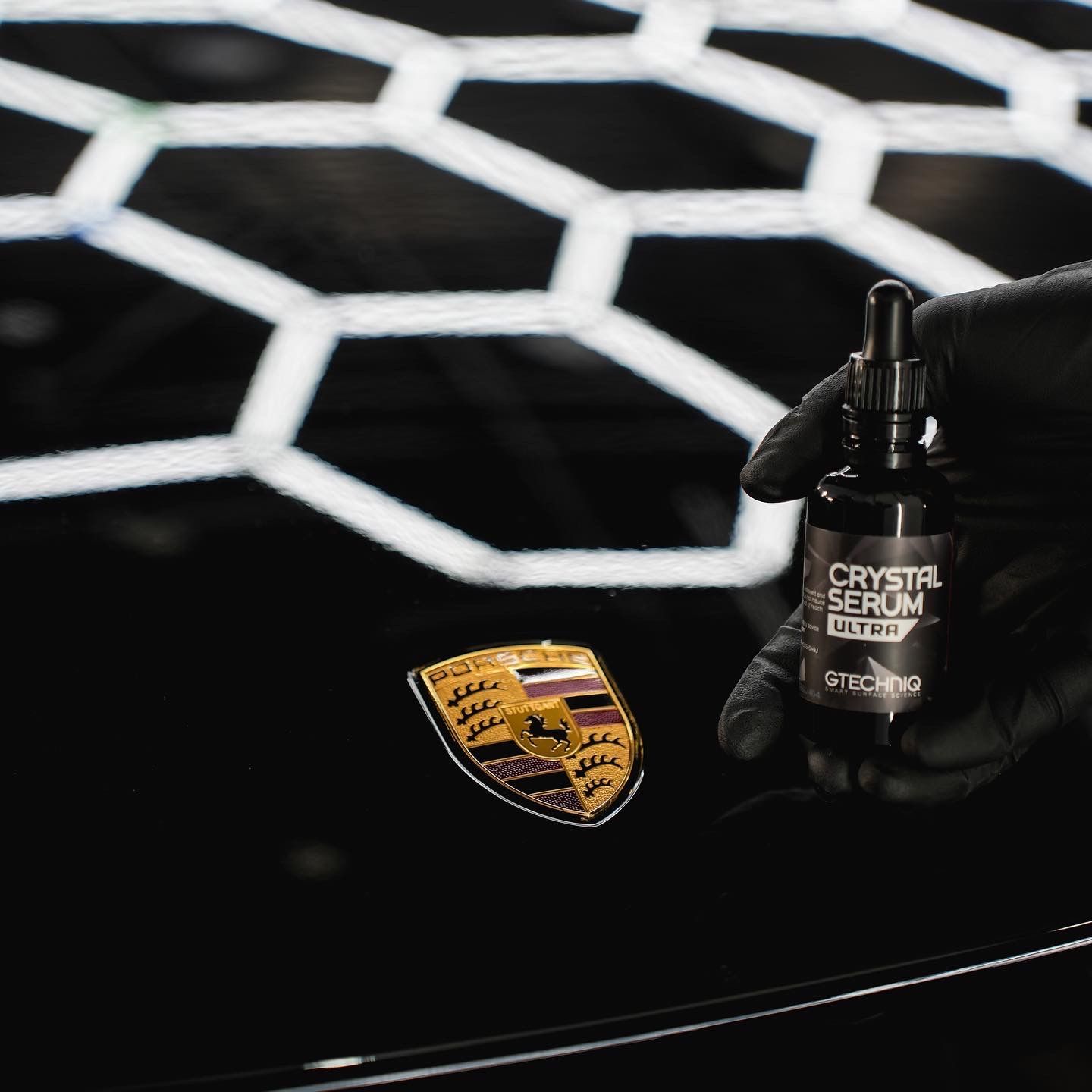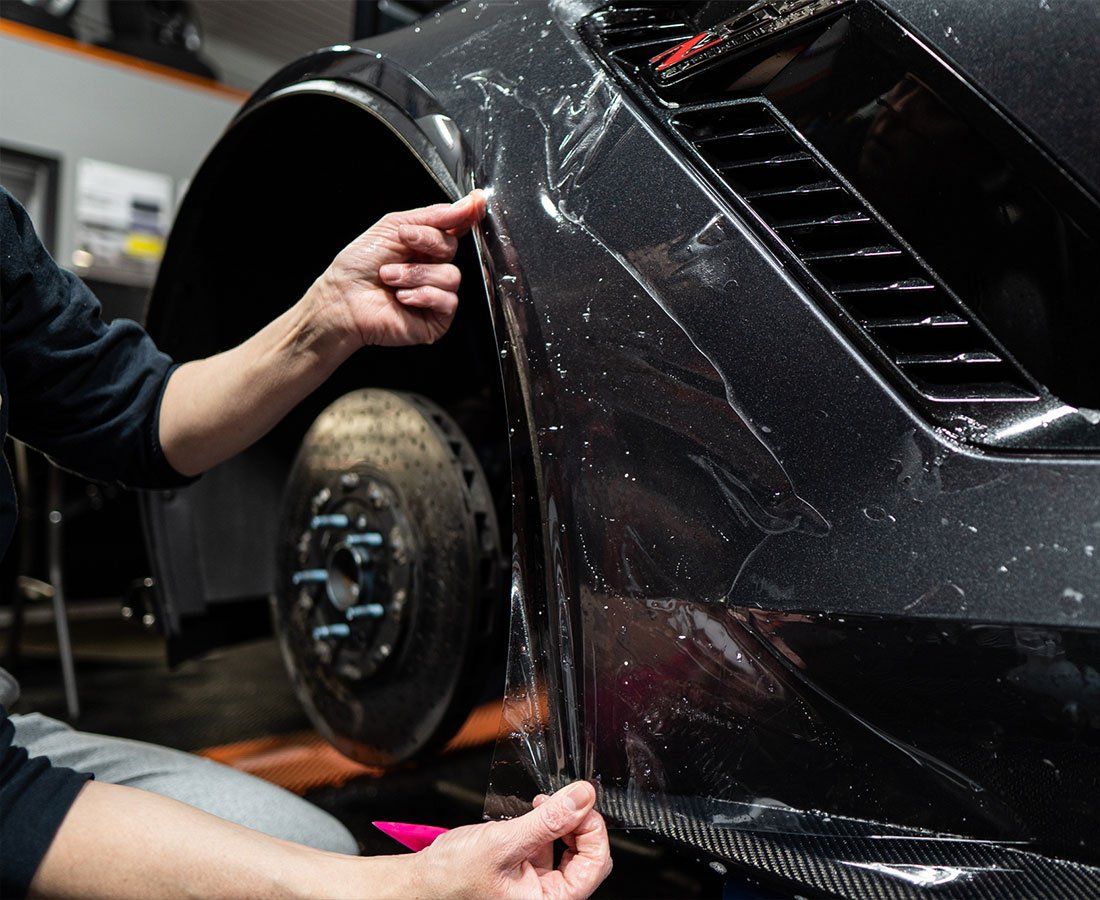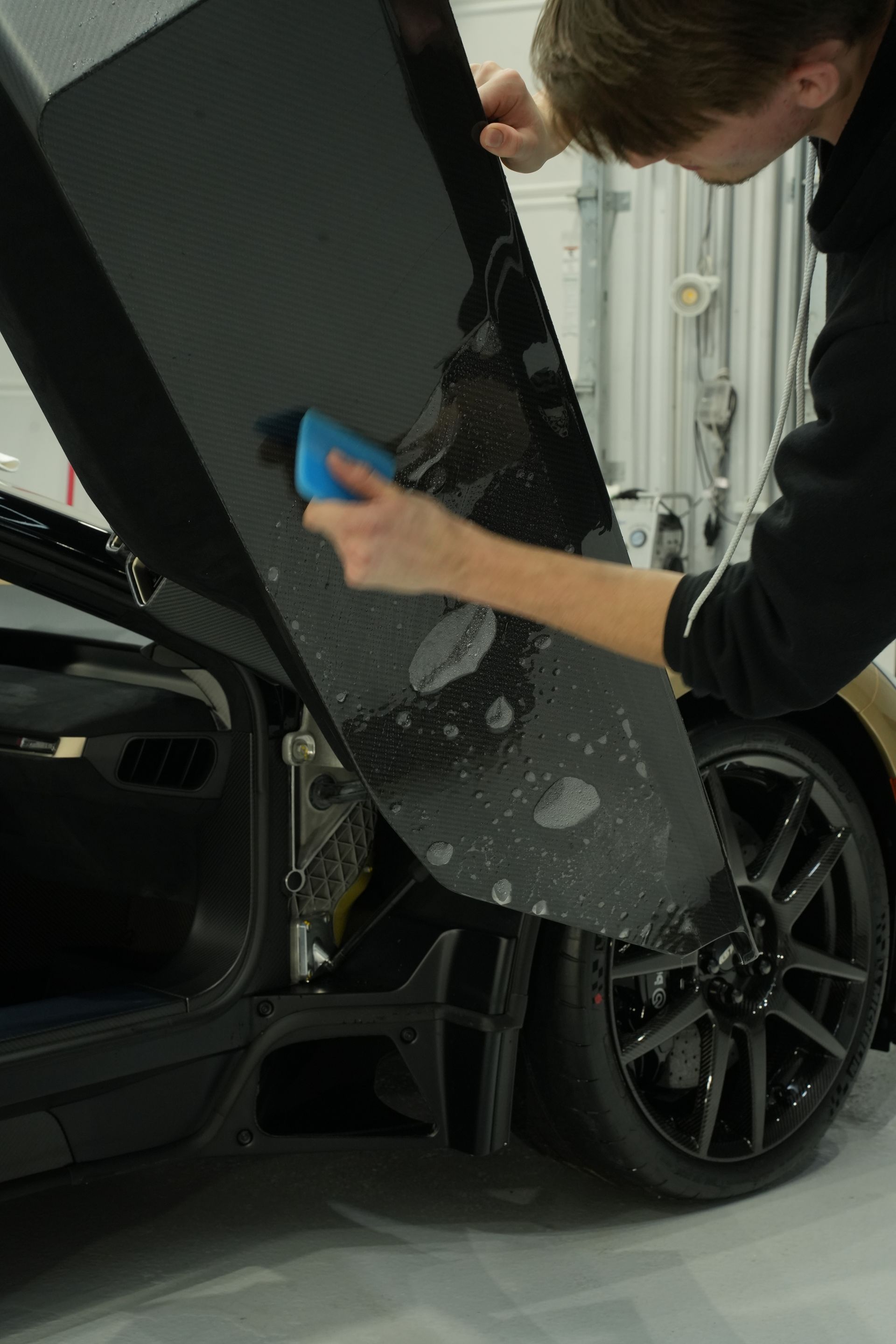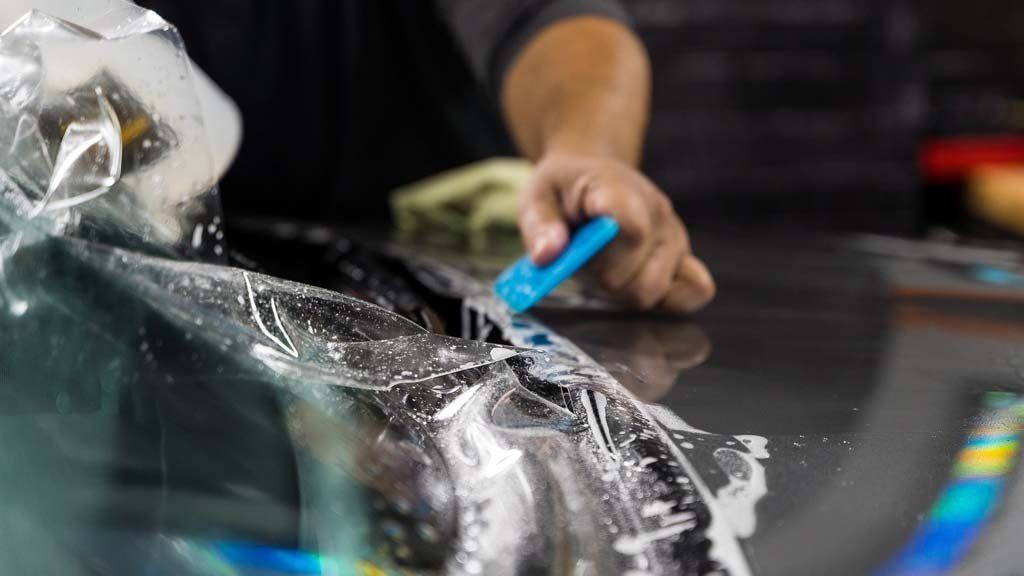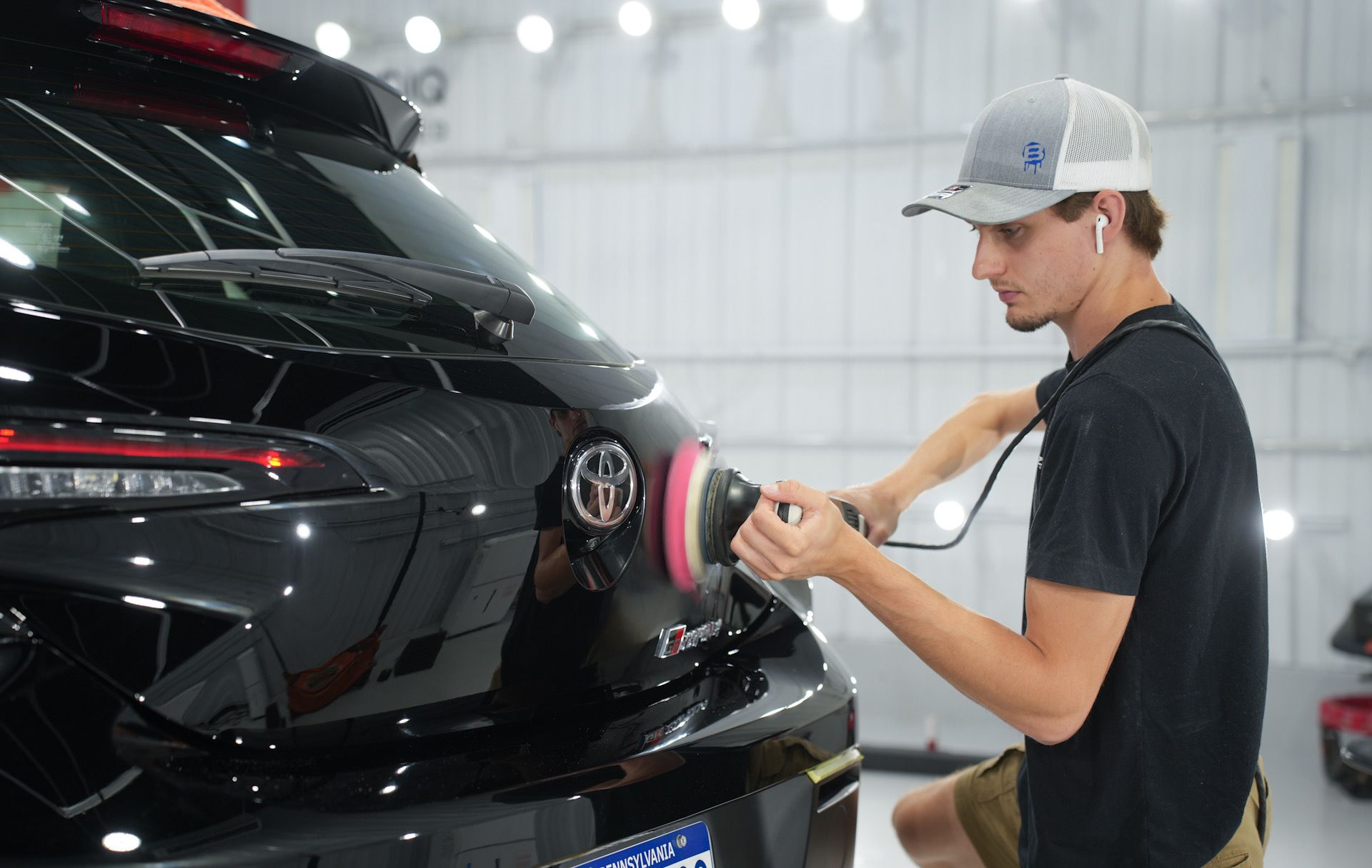The Complete Guide to Preparing Your Car for Ceramic Coating Installation
GET A QUOTE (484) 866-3022Investing in a professional ceramic coating is a smart way to protect your vehicle's finish and maintain a high-gloss appearance for years. However, the long-term performance of the coating depends heavily on one critical factor—proper preparation before application.
Without the right preparation, even the best ceramic coating can fail to deliver its promised durability and protection. In many cases, coatings that underperform do so because essential prep steps were skipped or rushed.
This guide explains the full process of preparing a car for ceramic coating installation, from the initial paintwork assessment to the final inspection before application. By following these steps, you ensure your coating bonds effectively, performs as intended, and provides the maximum possible lifespan.
Why Proper Preparation Makes or Breaks Your Ceramic Coating
Most coating failures trace back to one simple problem: shortcuts during prep. You can't see contamination with the naked eye half the time, but it's there. Road tar, tree sap, embedded brake dust, and water spots—all of this stuff creates barriers between your paint and the ceramic coating.
When a coating doesn't bond properly, you get inconsistent coverage. Some areas might be watered beautifully, while others look flat and dull.
Professional detailers spend 80% of their time on prep work for good reason. The actual coating application? That's maybe 20% of the total process.

Step 1: Initial Vehicle Assessment
Before you touch anything, you need to know what you're working with. Every car tells a story through its paint condition, and reading that story correctly determines your entire game plan.
Start by washing the car with a basic rinse and dry - nothing fancy yet. You want to see the paint condition without any products masking problems. Good lighting is crucial here.
Walk around the entire vehicle slowly and look for: • Swirl marks and fine scratches • Water spots or mineral deposits • Paint chips or other physical damage • Areas where previous wax buildup might exist
Take photos if it helps you remember problem areas. Check the paint thickness if you have a gauge—this tells you how much clear coat you're working with.
Step 2: Deep Cleaning and Decontamination
This is where things get serious. Regular car washing removes surface dirt, but ceramic coating preparation requires removing contamination you can't even see.
Start with a thorough wash using the two-bucket method. Use quality car shampoo—nothing with wax or gloss enhancers. You want to strip everything off the paint, not add more stuff to it.
Next comes clay bar treatment. This step removes embedded contaminants that washing can't touch. Industrial fallout, tree sap, and tar—all this stuff literally bonds to your clear coat over time. Clay bar pulls it right out.
Work in small sections of about 2x2 feet. Spray your clay lubricant generously and glide the clay gently across the surface. You'll feel it grab contamination and smooth out as you work.
Chemical decontamination comes next. Iron removers dissolve metallic particles that clay bars might miss. These products turn purple as they work—pretty cool to watch, actually.
Don't skip the tar remover step. Road tar is stubborn stuff that can bleed through coatings if not removed completely.
Step 3: Paint Correction
Here's where many people get intimidated, but paint correction is often necessary for proper ceramic coating preparation. You're not trying to win a concours event - just creating a smooth surface for optimal coating adhesion.
Assess your correction needs first. Light swirl marks might come out with a single-step polish. Heavy scratches could require multiple steps with different compounds.
Start with the least aggressive approach. Try finishing polish with a soft pad first. You can always step up to more aggressive products, but you can't undo paint removal.
Work in manageable sections of about 2x3 feet. Apply your compound to the pad, not directly on the paint. Start slowly to spread the product, then increase speed.
Paint correction takes patience. Rushing this step shows in the final result.
Step 4: Final Surface Preparation
You're in the home stretch now, but this final prep stage is critical. Even microscopic residue can interfere with coating adhesion.
Panel wipe with isopropyl alcohol (70% or higher). This removes any polish residue, oils from your skin, or other contaminants. Use clean microfiber towels and work systematically.
Inspect under proper lighting again. Look for any defects you might have missed or areas that require further correction. It's much easier to address these issues now than after coating applications.
Do a final dust removal using a clean microfiber to remove any particles that settled during prep work.
Professional vs. DIY Preparation
Deciding whether to prep your vehicle yourself or have professionals handle it depends on several factors beyond just cost.
DIY preparation works well if you have: • Adequate time (usually 8-12 hours minimum) • Proper workspace with good lighting • Basic experience with paint correction • Realistic expectations about your skill level
Professional preparation makes sense when: • Your vehicle has extensive paint damage. • You lack experience with machine polishing. • Time constraints prevent doing the work properly.
Ceramic coatings in Bethlehem, PA, require expertise that comes from years of experience working with different paint systems and coating products.
Cost is obviously a factor, but consider the total investment. A coating job that fails due to poor prep work costs more in the long run than paying professionals to do it right the first time.
Common Preparation Mistakes to Avoid
Even experienced DIYers make mistakes that compromise coating performance:
Rushing the process is mistake number one. Proper ceramic coating preparation takes time—often a full day or more, depending on your vehicle's condition.
Using contaminated tools creates new problems. That clay bar you used six months ago? It's probably contaminated. Always start with fresh supplies.
Skipping the clay bar step because the paint "feels smooth." Your hand isn't sensitive enough to detect embedded contamination.
Working in direct sunlight makes products behave differently. Hot panels cause compounds to dry out quickly.

Frequently Asked Questions
How long does proper ceramic coating preparation take?
Plan on 8-12 hours minimum for thorough prep work. Cars with heavy contamination can take significantly longer. Professional shops often spread this work across multiple days to ensure each step gets proper attention.
Can I use regular car wax before the ceramic coating application?
Never apply wax before ceramic coating preparation. These products create barriers that prevent proper coating adhesion. If your car has existing wax, it must be completely stripped during decontamination.
Is paint correction always necessary before ceramic coating?
Not always, but most vehicles benefit from at least light correction. Even new cars often have fine scratches from washing or transport. The goal is to create a smooth, uniform surface.
What happens if I skip the clay bar step during preparation?
Skipping clay bar treatment leaves embedded contamination on your paint surface. This creates an uneven base that prevents proper coating adhesion. You'll get patchy performance.
How do I know if my paint is properly prepared for coating?
A properly prepped surface should feel completely smooth and have a uniform appearance under good lighting. The surface should also sheet water evenly when rinsed.
Protect Your Car’s Shine—Start with Expert Ceramic Prep
Proper ceramic coating preparation separates successful coating jobs from expensive failures. The hours you spend cleaning, decontaminating, and prepping your paint surface directly determine the performance and longevity of your ceramic coating.
Whether you tackle the prep work yourself or trust it to professionals, understanding this process helps you make better decisions and get better results.
Ready to get started with professional ceramic coating services? Contact our team to discuss your vehicle's specific preparation needs and coating options.


